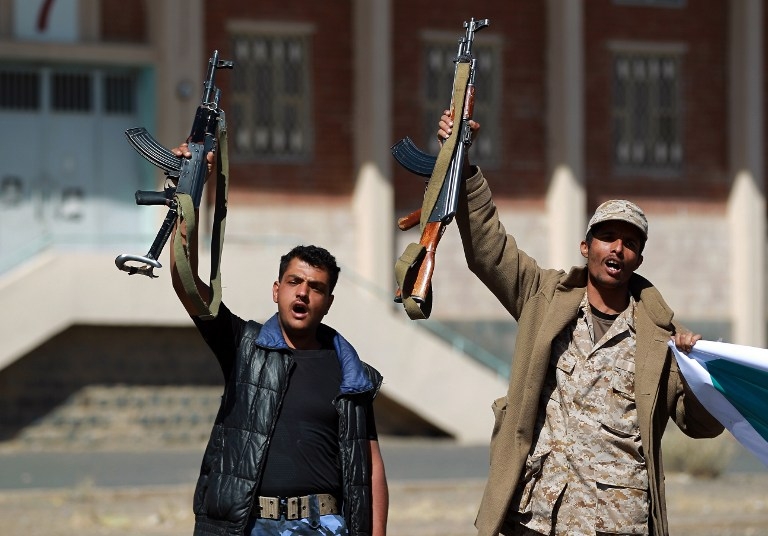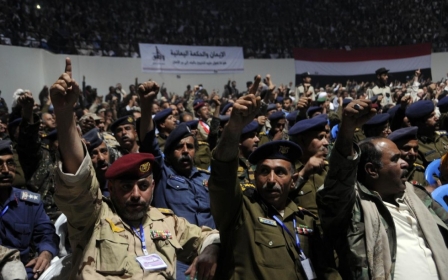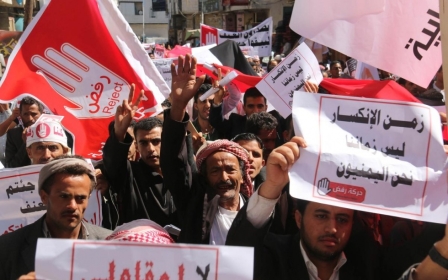Faced by deadlock, Yemen's Houthis on verge of seizing power

After days of political deadlock, Yemen's Houthi group are threatening to seize control of the state and form their own "revolutionary" government, a move that would signal the demise of a US-backed transition process ushered in after the mass protests of 2011 that toppled President Ali Abdullah Saleh.
The Houthis, who emerged as de facto rulers of Yemen last month when they seized control of the presidential palace forcing the resignation of president Abd Rabbuh Mansour Hadi, say a new form of leadership is needed to fill a power vacuum left by what they have described as a "failed" post-Arab Spring government. The Houthis' opponents accuse the armed group of being backed by Iran and staging a "slow-motion coup".
The Houthis - who desire a greater role in the government - met with other Yemeni factions and a UN envoy, Moroccan Jamal Benomar, in the aftermath of Hadi’s abrupt resignation on 22 January.
Representatives of the country's key political parties have gathered around Benomar this week to negotiate a political solution to growing military escalation in the capital.
Late on Thursday, the Houthis said on their Facebook page that most of the parties had agreed to form a presidential council to take charge of the country's affairs, but that the Islamist Islah party had requested more time before they declare their stance.
Once held up as an example of how a Middle Eastern autocracy could transition successfully to democracy after the Arab Spring, Yemen’s political system is now in ruins, with prospects for unity and stability increasingly grim.
In September, the Houthis moved into Sanaa from their northern stronghold of Saada seeking a broader political partnership in running the country. They now have fighters stationed across the capital, including in an army base and around several key government buildings.
Yemen’s stability is particularly important to neighbouring Saudi Arabia, the world’s top oil exporter. The Arabian Peninsula country is also fighting one of the most formidable branches of al-Qaeda with the help of US drone strikes.
Their opponents have staged demonstrations against the Houthis in several cities under the slogan: "Revolt until the overthrow of the coup forces."
Benomar has said Hadi and his cabinet are effectively under house arrest, warning that violence could erupt at any time.
The crisis has raised fears that impoverished Yemen could become a failed state.
In another sign of their growing influence, on Thursday Houthi gunmen stormed the Sanaa offices of the independent newspaper Akhbar al-Youm, the daily's director Seif al-Hadheri told AFP.
He said the gunmen were holding employees, but did not give further details.
New MEE newsletter: Jerusalem Dispatch
Sign up to get the latest insights and analysis on Israel-Palestine, alongside Turkey Unpacked and other MEE newsletters
Middle East Eye delivers independent and unrivalled coverage and analysis of the Middle East, North Africa and beyond. To learn more about republishing this content and the associated fees, please fill out this form. More about MEE can be found here.




